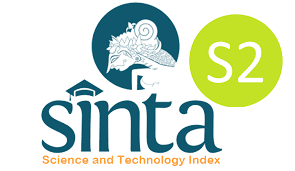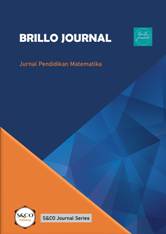Utilization of Instructional Materials and Junior Secondary Students’ Academic Achievement in Geometrical-Shapes
DOI:
https://doi.org/10.56773/bj.v3i2.54Keywords:
Academic achievement, Conventional method, Geometrical shape, Instructional material, Retention abilityAbstract
This study investigates the utilization of instructional materials and junior secondary students’ academic achievement in geometrical shapes. A quasi-experimental design with experimental and control groups, including pre-test, post-test, and post-posttest measures, was implemented. The target population consisted of 1329 JSS II Students from Bida Local Government Area, Niger State, with sample size of 171 (Male=84, Female=87) students from two schools and two intact classes. Sample was determined through purposive and simple random sampling, selecting all mixed schools with experimental and control groups. Three research questions and hypotheses were formulated to guide the study. Data collected employed instruments: The Geometry Performance Test (GPT), Geometry Achievement Test (GAT), Lesson model for the control and experimental group. The GPT and GAT were validated by three experts and also demonstrated good reliability. The results revealed that students taught with instructional material performed better comparing with those taught without instructional materials and also there is no significant differences found in gender in the experiment group. In addition, there is significant difference in the retention ability of those who were taught using instructional materials and those taught without instructional material. Based on these results, mathematics teachers should use instructional materials during teach mathematics especially geometrical shapes.
References
Adebule, S. O., & Ayoola, O. O. (2016). Impact of instructional materials on students’ academic performance in mathematics in secondary schools in Ekiti State, Nigeria. Research Journal of Educational Studies and Review, 2(1), 1–4.
Ahmad, M. U., & Aliyu, A. Z. (2022). Innovative pedagogical strategies for teaching and learning of perceived difficulties in mathematics. In M. L. Kaurangini (Ed.), Proceedings of the 58th Mathematical Association of Nigeria Annual National Conference (pp. 246–256). Mathematical Association of Nigeria.
Aliyu, A. Z., & Ahmad, M. U. (2021). Effect of team teaching method on secondary school students’ achievement in trigonometry in Bida Educational Zone, Niger state. Kano Journal of Educational Psychology, 3(1), 162–168.
Dalnaik, S. K. (2022). Usefulness of instructional materials on academic achievement in mathematics among higher secondary school students of Majurbahanj District, Odisha. International Journal of Advances in Engineering and Management (IJAEM), 4(12), 581–586.
Green, B. (2023). Improvisation of instructional materials and junior secondary school students’ academic achievement in basic science in Rivers State, Nigeria. Faculty of Natural and Applied Sciences Journal of Mathematics, and Science Education, 5(1), 102–110.
Inekwe, O. I. (2019). Mathemaphobia: A Differential Derivative [43rd Inaugural Lecture]. Michael Okpara University.
National Teachers’ Institute. (2010). Mathematics Course: Nigeria Certificate in Education (NCE) Cycle 2. National Teachers’ Institute.
National Teachers’ Institute. (2012). Mathematics Course: Nigeria Certificate in Education (NCE) Cycle 3. National Teachers’ Institute.
Oguche, B. A., & Usman, K. O. (2019). Effect of improvised instructional materials on students’ achievement and interest in Longitude and Latitude. International Journal of Research and Innovation in Social Science, 3(4), 313–320.
Purwitaningrum, R., & Prahmana, R. C. I. (2021). Developing instructional materials on mathematics logical thinking through the Indonesian realistic mathematics education approach. International Journal of Education and Learning, 3(1), 13–19. https://doi.org/10.31763/ijele.v3i1.178
Downloads
Published
How to Cite
Issue
Section
License
Copyright (c) 2024 Manko Umar Ahmad, Alhaji Zakariyya Aliyu, Alhaji Mohammed Liman

This work is licensed under a Creative Commons Attribution 4.0 International License.
The authors agree that this article remains permanently open access under the terms of the Creative Commons Attribution 4.0 International License





